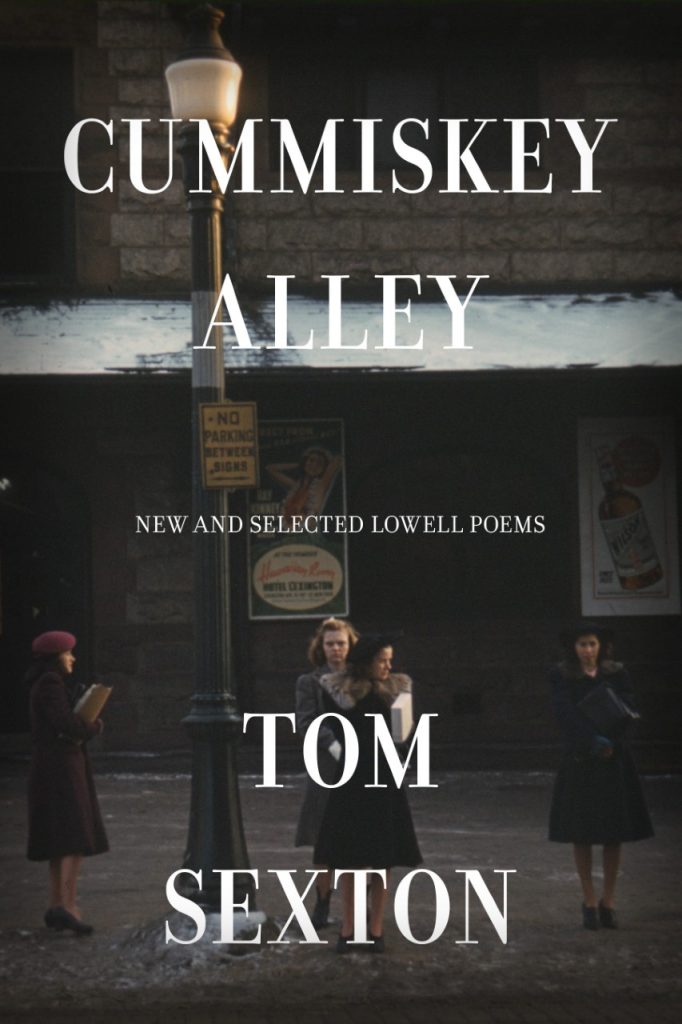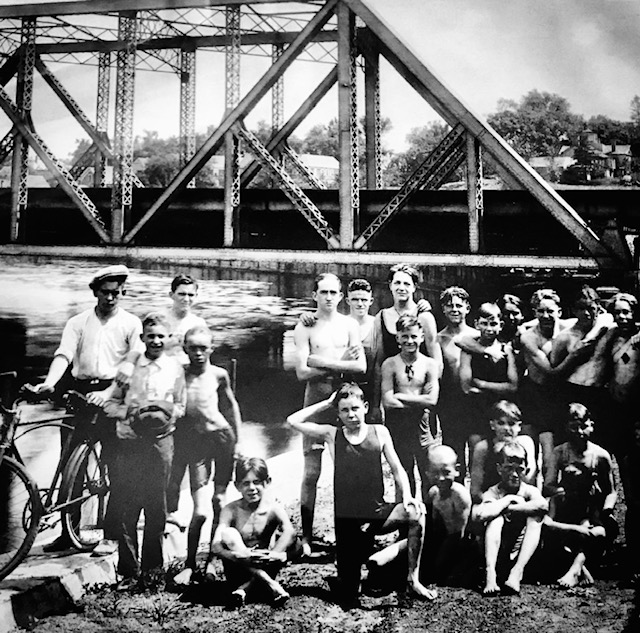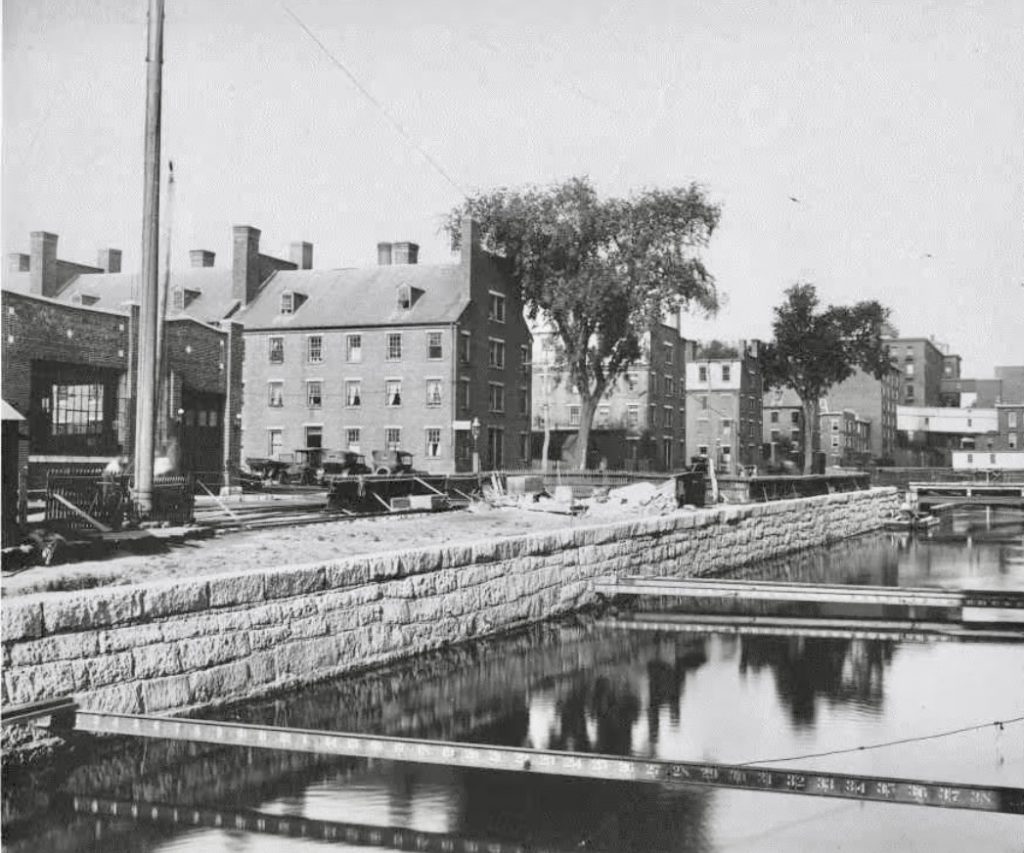CUMMISKEY ALLEY New and Selected Poems by Tom Sexton
Former Alaskan poet Laureate Tom Sexton’s latest volume of poetry is “Cummiskey Alley.” The collection is named after Lowell’s first Irishman, Hugh Cummiskey, who walked from Boston to Lowell with a group of Irish laborers. Cummiskey and many other Irish labors dug miles of canals in Lowell, and helped birth the nation’s first industrial revolution. The following poems explore the American experiences of immigrants, largely Irish, and their descendants. The book is available from loompress.com or amazon.com
Amerikay, 1832, a Letter
When your ship sails into Boston Harbor
stay with those who are walking to Lowell
By road or along the bank of the canal
that goes from Charlestown to the Paddy Camps.
I helped dig it when I came over. They need servants.
Don’t speak Irish. Drown it like an unwanted kitten.
Answer when they call you Bridget. They can’t
imagine we have our own names or our own spit.
No Lord owns the sky or the clouds overhead.
Don’t let them laugh at you like the poor Bridget
who begged the druggist for the glory of rhyme
when sent by her mistress for chloride and lime.
Sister bend like a rowan on a windswept ridge.
Be as bright as the halo around the Virgin’s head.
For Sean Sexton of Coolmeen
While visiting Limerick, I read in the paper
how you discovered nine of your cows
dead in the high pasture when you went
to gather them for the evening’s milking,
how you led the singed and blind survivor
down to the barn where it bawled all night.
Why lightning from a quickly clearing sky?
If I had driven out to Coolmeen, we could
have watched the western sky for comets,
celestial debris our poor ancestors called
the tears of saints. And naked, painted
like two ancient Gaels, we could have walked
the hills reciting the misfortunes of our name –
the cattle stolen and the ancient tower sacked
until the heaving sea itself was wet with tears
Wamesit Falls
Branches and debris
in the Concord
River where Oliver
Whipple made gun-
powder so fine
it was better
than gold coin
when filling a
ship’s deep hold
with African slaves;
early one morning
in 1820,
the mill exploded
and poor Tom
Sullivan, father of
Mary and Rose
went up like
a Chinese rocket;
a few beads
from the rosary
he no longer
needed were all
that came back
down, not even
a singed ear.
If you come
this way on
a clear night,
look for him
in the curled
lip of water,
in the stars.
Walden Pond
The sky was clear and pine needles
covered the path to where Thoreau
built his cabin on the morning I saw
mist rising from a cove like a ghost
and found myself thinking of that Irish
bogtrotter, James Collins, who sold
his shanty by the railroad tracks
to Thoreau for twenty-four dollars.
Collins who was last seen walking west
just as dawn was breaking with everything
he owned tied in a bundle on his back.
Walking behind were his wife and children
and the scrawny chickens who had spied
a man circling the shanty lime a fox.
May he always have a roof for the rain.
May the sun shine bright on his windowpane.
Lowell’s Irish Micky Ward
Round 2. Ward’s left eye is already cut
but he keeps moving toward Arturo Gatti.
My wife’s gone to bed and turned out the light.
Gatti’s left hook sounds like a thunderclap.
I haven’t watched a fight in many years,
not since I moved far away from Lowell.
A Celtic Cross glistens on Ward’s shoulder.
I wince as he shakes off blow after blow.
He has my uncle Leo’s fighter’s face
with features almost as flat as a stone.
Staggered by a right he picks up the pace.
I want to see a hurt Gatti go down.
They fight to a draw. Closed eye for closed eye.
I go to bed shamefaced and stubbornly tribal.
Tom Sexton was born in Lowell, Massachusetts, and lived in the city through his high school years. He earned degrees at Northern Essex Community College and now-Salem State University, and then pursued graduate studies at the University of Alaska, where he stayed and founded the creative writing program at the Anchorage campus. He taught there for decades and co-founded the highly respected Alaska Quarterly Review. The author of many volumes of poetry, his most recent collections are Li Bai Rides a Dolphin Home (2018), A Ladder of Cranes (2015), and For the Sake of the Light: New and Selected Poems (2009), all from the University of Alaska Press. His Lowell books are A Clock with No Hands andBridge Street at Dusk. Among his honors are being appointed Poet Laureate of Alaska (1995-2000) and being named a Distinguished Alumnus of Lowell High School. Tom and his wife Sharyn have lived in Alaska since 1970. Recently, they have lived part-time on the coast of Maine.
Photos used courtesy of the Lowell Historic Board. Photos 2-4 are from the Lowell National Historical Park, photo 5 is from the Lowell Sun. Author photo by Kevin Harkins, used by permission of the photographer and Loom Press.
4 Responses to CUMMISKEY ALLEY New and Selected Poems by Tom Sexton
Louise Peloquin says:December 18, 2020 at 11:19 am“in the curled
lip of water,
in the stars”
I shall look for Tom Sullivan, his countrymen and all who came to Lowell from afar.
These poems – such beauty!Gerard J Bisantz says:December 19, 2020 at 10:38 amWell done, Mr.Sexton! “Amerika 1832” was so well written… it is not only the story of the Irish, but also the story of every new immigrant group who were met with blatant ignorance and hostility for their own culture. Thank you for your talent.
Jeannie Sargent Judge says:December 20, 2020 at 12:57 pmThese poems are rich with history. In combination with the Cemetery Tour video, they brought the past into my view from home.
Fionnuala o shea says:January 3, 2021 at 6:03 amThank you for sharing these poems. They have fired my imagination and awoken the ancestors.




